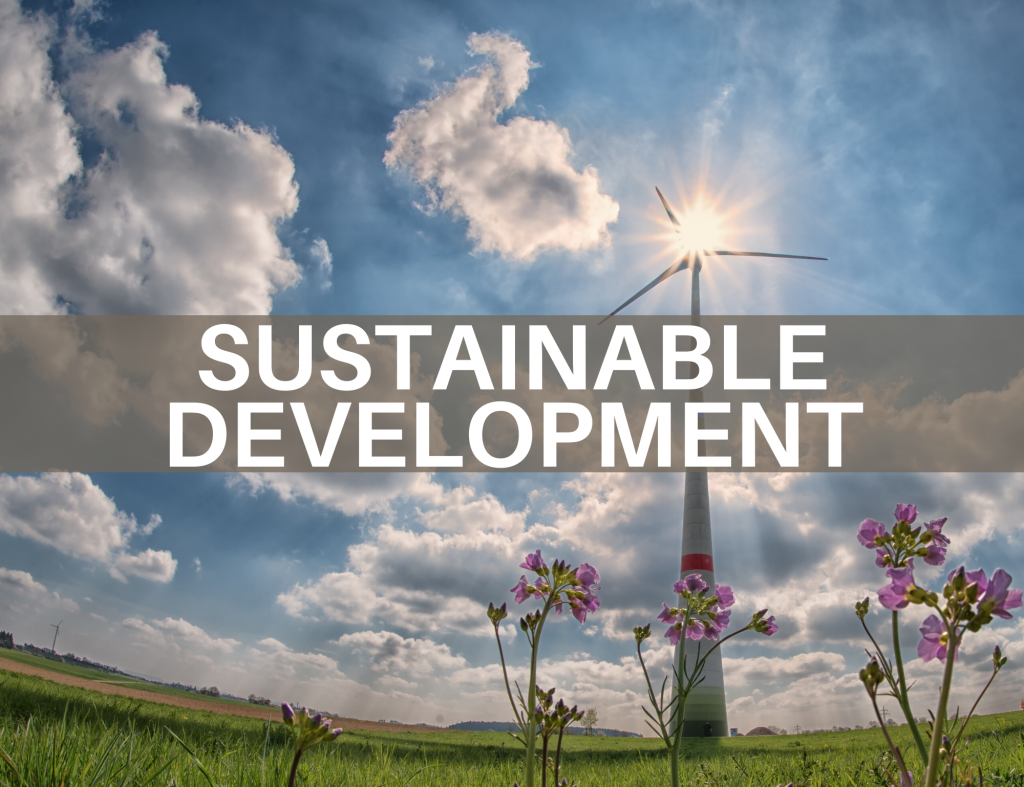The Sustainable Development Committee (SDC) provides leadership and expertise to the CSCE with respect to sustainable development and in particular with respect to sustainable engineering practice. The objective of the SDC is to support the Canadian Society for Civil Engineering (CSCE) in promoting sustainable practices in the civil engineering profession, educating members on sustainable development principles, and advocating for policies that advance sustainable development. The committee’s responsibilities include:
- Developing and implementing strategies to promote sustainable practices in the civil engineering profession.
- Educating members on sustainable development principles through publications, events, and workshops.
- Advocating for policies that advance sustainable development, including promoting infrastructure that reduces environmental impacts and promotes social and economic equity.
- Promoting research and innovation in sustainable engineering practices and technologies.
- Collaborating with other CSCE committees and external organizations to advance sustainable development initiatives.
- Monitoring and reporting on national and international sustainable development initiatives relevant to the civil engineering profession.
- Providing guidance to CSCE members on sustainable development practices and issues.
- Participating in and supporting CSCE’s sustainability-related events and initiatives.
The strategic areas include:
- Interdisciplinary Collaboration and Engagement:
Objective: Foster collaboration among civil engineers, environmental experts, policymakers, and other stakeholders to develop comprehensive solutions.
- Develop partnerships with academic institutions, NGOs, and industry organizations to facilitate information exchange and cross-disciplinary projects.
- Organize workshops, seminars, and conferences to encourage dialogue and collaboration among diverse stakeholders.
- Establish an online platform for sharing research, best practices, and case studies related to sustainable development.
- Knowledge Dissemination and Capacity Building:
Objective: Enhance the understanding and application of sustainable development principles among civil engineers.
- Develop educational resources, webinars, and training programs to build the capacity of civil engineers in integrating sustainability into their projects.
- Create a repository of case studies that highlight successful projects incorporating sustainable practices.
- Collaborate with universities to incorporate sustainable development principles into civil engineering curricula.
- Innovation and Research:
Objective: Promote innovation and research in sustainable infrastructure and development practices.
- Initiate awards to incentivize innovative solutions addressing sustainability challenges.
- Collaborate with research institutions to conduct studies on emerging trends and technologies in sustainable development.
- Encourage the development and adoption of green technologies and materials within the civil engineering sector.
- Advocacy and Policy Influence:
Objective: Influence policies and regulations to integrate sustainable development practices into the broader development agenda.
- Engage with policymakers and government agencies to advocate for the integration of sustainable development principles in infrastructure projects.
- Publish policy briefs and white papers outlining the economic, social, and environmental benefits of sustainable practices.
- Provide a venue to share expertise and influence global discussions on sustainable development.
- Community Outreach and Impact:
Objective: Drive positive change at the community level by implementing sustainable infrastructure and development projects.
- Collaborate with chapters to identify their specific needs and priorities for sustainable development.
- Measure and communicate the social, environmental, and economic impact of implemented projects to inspire further initiatives.
- Monitoring and Reporting:
Objective: Continuously evaluate the progress of the committee’s initiatives and communicate results transparently.
- Establish key performance indicators (KPIs) to track the effectiveness of the committee’s activities in each goal area.
- Regularly publish progress reports detailing accomplishments, challenges, and future goals.
- Solicit feedback from stakeholders to ensure ongoing improvement and relevance of the committee’s efforts.
- Resource conservation and efficiency
- Urban sustainability, including sustainable transportation, green planning, and urban development
- Brownfield remediation
- Naturalized stormwater management
- Climate change adaptation and resiliency
- Disaster mitigation planning
- Climate change mitigation, decarbonization, and emissions reduction in the built asset industry
- Circular economy, sustainable material use, and integrated waste management
CHAIR:
| Erik Poirier, Ph.D. | erik.poirier@etsmtl.ca Department of Construction Engineering, École de Technologie Supérieure |
|---|
VICE-CHAIR:
| Prabh K. Banga | pbanga@aecon.com Vice-President, Sustainability, AECON GROUP INC. |
|---|
PAST CHAIR:
| Kerry E. Black, PhD. | kerry.black@ucalgary.ca University of Calgary |
|---|
MEMBERS:
Ata Khan,
Ph.D., P.Eng.(ON), F.CSCE., F.ITE. |
Carleton University, Civil & Environmental Engineering |
|---|---|
Al Perks,
P.Eng. (ON, retired), M.CSCE |
Adjunct Faculty, University of Ottawa |
| Mohamed Saleh | University of Alberta |
| Dimitri Pasquion | — |
| Eric Dunford | Pratus Group |
| Catherine Leblanc | Université de Moncton |
